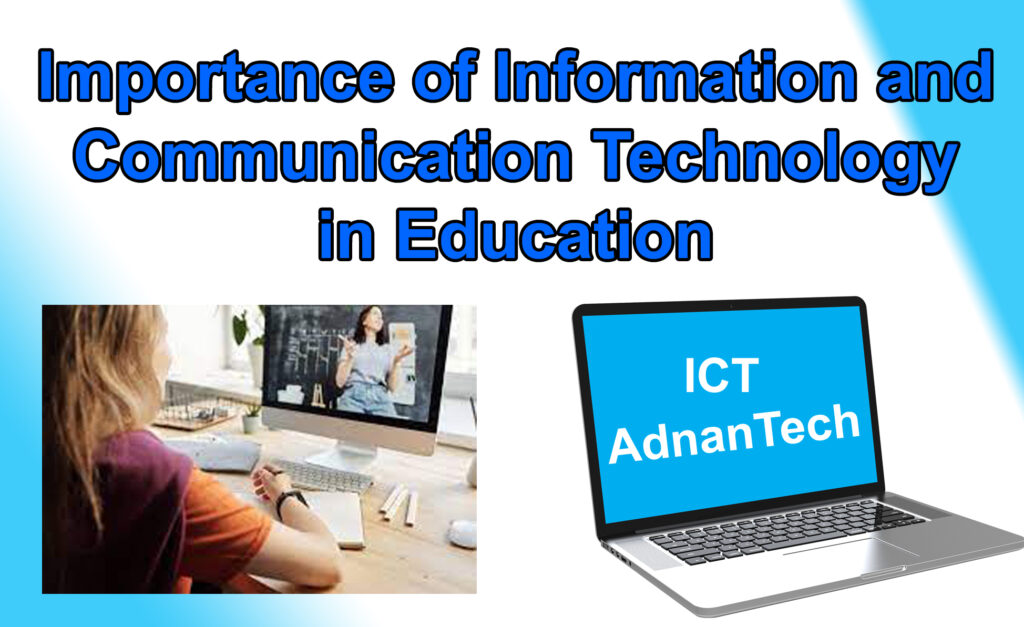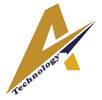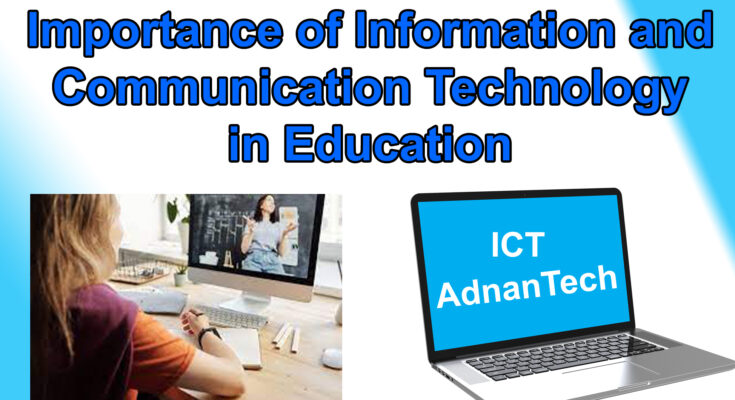Importance of Information and Communication Technology in Education has been overgrown due to implementation of new technologies into daily life. ICTs have risen exponentially in significance in modern society due to their numerous uses in various fields, including entertainment, administration, robotics, education, and all kinds of businesses.
Let’s first clarify ICT before going any further.
What Does ICT Mean for Education?
Information and communications technology is called ICT. Tools that handle information include producing, storing, and sending data, as the name implies. ICT consists of all new and old devices. Radio, TV, and the telephone are examples of outdated technology. Computers, satellites, the Internet, and wireless technology are brand-new tools.
It is available in various formats, including audio, video, audio-visual, and text. It alludes to the newest advances and a collection of straightforward audio-visual tools, including slides, radio, tapes, and films.
ICT can be used in education for a variety of purposes. However, there are some practical issues with ICT use in preschool.

What technology are most popular in classrooms?
Blogs and social networks allow us to set up study groups where students can expose or discuss various subjects, submit specific topic content, etc.
Tool-based planning
Calendars and task managers are great for scheduling exams, deliveries, and other tasks like initialization.
Data storage on the cloud
It allows us to collaborate while having access from any device and location. Suites offer, storage, and other utilities are a few examples of using this technology.
Interactive tables and digital whiteboards
Whiteboards let your project and control images from a computer, take notes and make comments, and save and email the screen.
ICT in Education: Importance and Role
Today, whether it is laptops, plasma TVs, or mobile phones, people no longer even need to leave their homes or rooms to witness any ICT in their daily lives. They affect each of them in some capacity. In today’s culture, everyone who uses ICT is striving for the same dream and the dream of coexisting.
ICT is becoming a lifestyle choice for a significant number of people. These lifestyle decisions also alter how people engage with one another and gather information and how we communicate and consume more.
Many aspects of human life are impacted by it.
ICT’s role in education
The importance of information and communication technology in education explains for the following reasons.
Uncomplicated to Reach
All types of students have access to ICTs in school. All pupils can learn something from the resources offered. It can benefit all students, even those with specific needs. ICTs also address issues like the digital divide and give even the impoverished access to resources that support and enhance learning.
Encourages collaboration
When students work together, information and communication technology promotes teamwork. Your communication skills improve when you discuss, converse, and learn together. You only need a laptop, tablet, or desktop computer to test it out. By promoting communication, ICT instruments create avenues for language development.
Enhances Engagement & Knowledge Retention
Children get increasingly engaged in learning due to the integration of ICTs into education and effective teaching. It is made possible by the technologies that make experience the best, creative, and playful, which improves learning in various ways. Students learn more effectively as a result, which contributes to knowledge preservation.
Developing Higher-Order Thinking and Skills
More excellent thinking and reasoning abilities develop via ICTs. These abilities make it possible to examine, plan, monitor, control, reflect, etc. Students must be able to discuss, experiment with, and assess the strategies and techniques they employ to use ICT.
E-Learning for student
E-learning, which teaches students and educators trying to cut educational techniques, is an outcome of information technology and its instruments. To make sure that you keep learning about your hobbies, online education has become famous since the corona pandemic.
Increase in the Knowledge Economy
ICT use is essential everywhere and at all levels since today live in an economy hungry for creating and transmitting accurate information. ICTs reach all levels of industries like health, education, production, the environment, and manufacturing.
Everyone can access it.
ICT in education makes learning accessible to all kinds of students. All students can learn from the offered material. Even pupils with particular needs can use it to their fullest potential. ICT has also addressed problems like the “wide disparity,” enabling even those less fortunate to access the materials they need for learning.
Increases participation and memory of information
Children get more involved in learning and exhibit increased involvement when ICT use in education. Technology is responsible for everything. Games and creativity it has made learning enjoyable. It improves education in a variety of ways. As a result, the students learn more effectively and retain more information.
Using technology to deliver effective distinction instruction
In modern society, there are a variety of learners with unique learning preferences. Therefore, the responsibility of offering differentiated education to various learners is completed by technology.
A crucial component of the program
According to the most recent curriculum, ICT is crucial to the educational process. As a result, ICT has become a significant component of education and the curriculum in many governments worldwide.
Goals for Using ICT in Education
ICT in education plans includes the following:
- Promoting accessibility through online learning.
- Enhancing educational standards, particularly in rural areas.
- To make the educational system more transparent.
- To make the educational system’s policies, regulations, and laws stronger.
- To assess the success of the student’s learning and participation.
- Students’ behavior, participation, and recall in the learning process are monitored and evaluated.
- To evaluate how well students performed, they were placed and used their knowledge.
Conclusion
ICT plays a significant role in education, assisting teachers with tool adaptation, knowledge delivery, and practical knowledge distribution to students, achieving continuous learning.
By encouraging students to share their experiences and knowledge with others, information and communications technologies in schools promote an influential learning culture. It aids in the growth of pupils’ technological expertise. Data is gathered, processed, stored, and transmitted as part of these tasks.





One Comment on “Importance of Information and Communication Technology in Education”